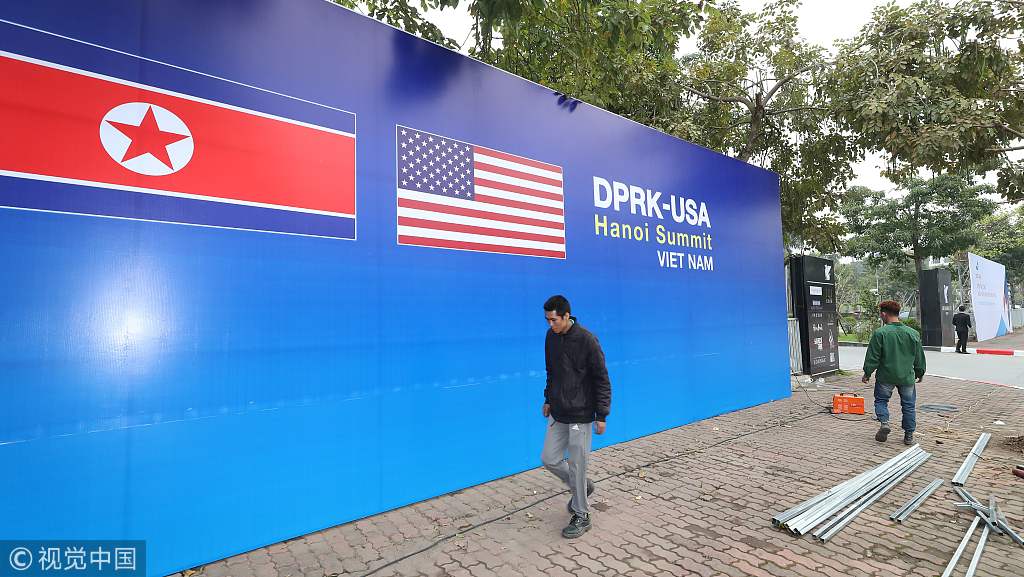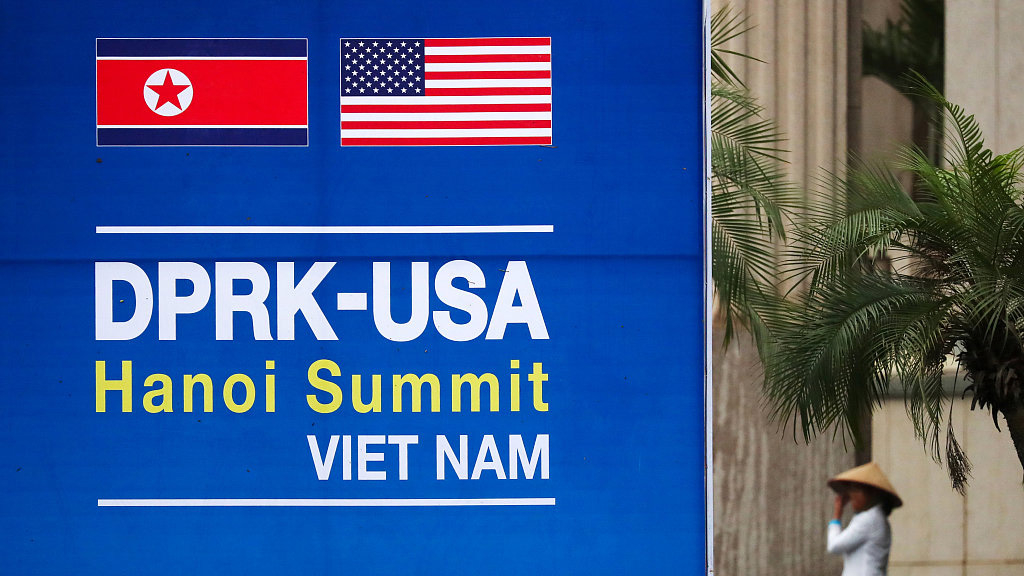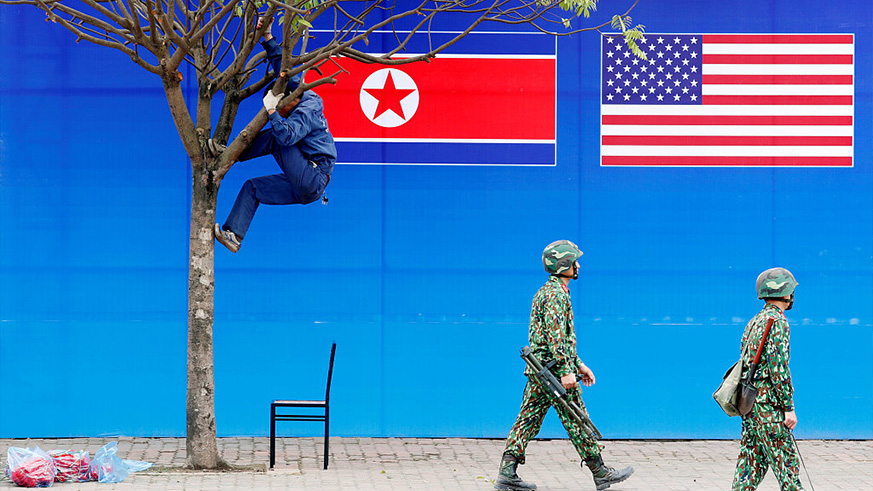
TV Show
18:13, 26-Feb-2019
Former U.S. top negotiator questions DPRK's sincerity in Hanoi
World Insight with Tian Wei
01:14

"The U.S. needs to be clear that we're seeking denuclearization and nothing less. The problem of allowing the DPRK to keep nuclear weapons is that at certain point other countries will be tempted to do the same and then the whole international non-proliferation process falls apart," said Christopher Hill, a former U.S. Assistant Secretary of State for East Asian and Pacific Affairs.
Key to successful Hanoi summit
Hill, who also led the U.S. delegation in the Six-Party Talks from 2005 to 2009, told CGTN's Tian Wei that the key to a successful Hanoi summit is that the DPRK shows they are genuinely serious about denuclearization. But frankly, there's a lot of skepticism surrounding the DPRK on the matter.
Hill sounded troubled by the fact that although both leaders talked about denuclearization during their Singapore summit in 2018, it still remains only a long-term commitment.
He's not sure if a long-term commitment helps the U.S. in the current political and security climate. Hill believes that the two sides need to talk about denuclearization in a reasonable time frame.
The second question, he suggests, is what the DPRK seeks in return? Do they need an end of sanctions? and what sequence of denuclearization and lifting of sanctions would they agree to?
Hill is concerned that the DPRK is looking for something more problematic like getting the U.S. troops out of the Korean Peninsula.
He feels that troop withdrawal is a matter between the U.S. and the ROK, not between the U.S. and the DPRK.
What could be the outcome of 2nd Trump-Kim summit?
Regarding the outcome of the Hanoi summit, Hill looks forward to something more solid that suggests early denuclearization. The outcome should also include a vision of future U.S.-DPRK ties and an indication of what the U.S. is prepared to do. According to Hill, commitments from the U.S. could include a peace treaty, cross-recognition, and security assurances.
Hill believes the U.S. is prepared to make progress. He pointed out that U.S. Secretary of State Mike Pompeo is committed to the process and he has named a very experienced long-time Washington hand, Steve Biegun, as the negotiator.
The entire negotiation, Hill said, should be about discussing a tight sequence of measures that both sides need to take. "You can't have a negotiation where one side waits and hopes that the other side will do what it's supposed to do," he said.
Lessons from the past
01:02

As the chief U.S. negotiator in 2009, Hill feels that 10 years on, a lot has changed. The DPRK has developed new technology including some threatening missiles and successful nuclear weapons. He said that even though the situation is different, it's no less urgent.
He recalled that when the DPRK was in talks with him, it continued to engage in the process to import equipment for a highly-enriched uranium program. Within a few months after the end of the Six-Party process, the DPRK showed an American scientist Siegfried Hecker an entire enriched uranium facility.
Hill questioned the DPRK's sincerity in the past and believes the question now is whether DPRK's new leadership will lead to something concrete and real.
Working with China on denuclearization
02:06

Hill spoke highly of the friendly relationship and cooperative dynamism he developed with his Chinese colleagues at the Six-Party Talks.
While commenting on the present state of China-U.S. ties, he said it's one of the most disappointing things in the world that China and U.S. have great difficulty working together, adding that he's very proud of the pattern of cooperation in the past.
He joked that the DPRK deserves great credit for helping the U.S. and China work together. He still holds the view that China-U.S. ties are too important to fail and the two countries are doomed to work together.
Currently, Hill is the chief adviser to the Chancellor for Global Engagement and a professor of the Practice in Diplomacy at the University of Denver.
(If you want to contribute and have specific expertise, please contact us at opinions@cgtn.com.)

SITEMAP
Copyright © 2018 CGTN. Beijing ICP prepared NO.16065310-3
Copyright © 2018 CGTN. Beijing ICP prepared NO.16065310-3